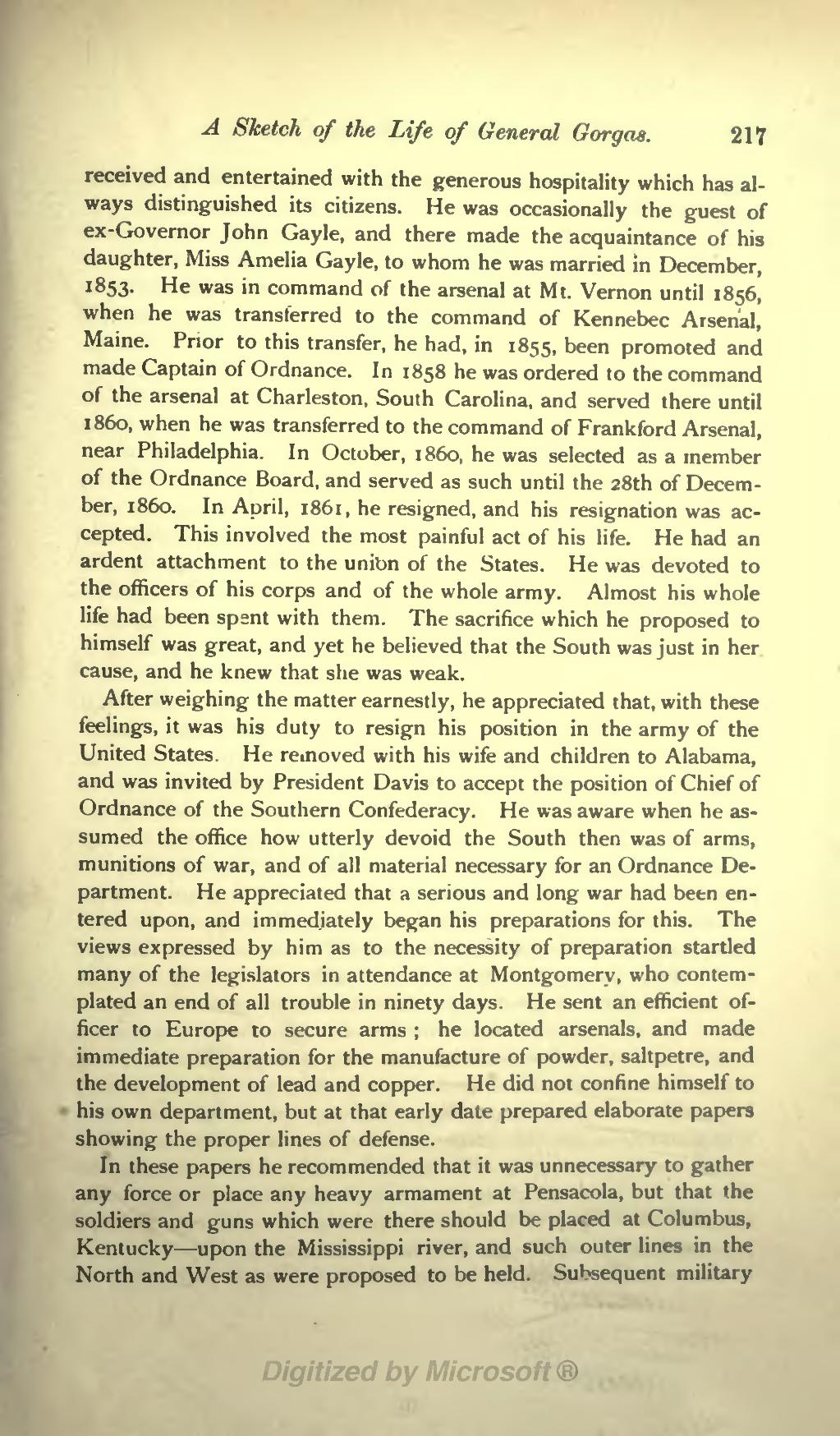A Sketch of the Life of General Gorgas. 217
received and entertained with the generous hospitality which has al- ways distinguished its citizens. He was occasionally the guest of ex-Governor John Gayle, and there made the acquaintance of his daughter, Miss Amelia Gayle, to whom he was married in December, 1853. He was in command of the arsenal at Mt. Vernon until 1856, when he was transferred to the command of Kennebec Arsenal, Maine. Prior to this transfer, he had, in 1855, been promoted and made Captain of Ordnance. In 1858 he was ordered to the command of the arsenal at Charleston, South Carolina, and served there until 1860, when he was transferred to the command of Frankford Arsenal, near Philadelphia. In October, 1860, he was selected as a member of the Ordnance Board, and served as such until the 28th of Decem- ber, 1860. In April, 1861, he resigned, and his resignation was ac- cepted. This involved the most painful act of his life. He had an ardent attachment to the union of the States. He was devoted to the officers of his corps and of the whole army. Almost his whole life had been spsnt with them. The sacrifice which he proposed to himself was great, and yet he believed that the South was just in her cause, and he knew that she was weak.
After weighing the matter earnestly, he appreciated that, with these feelings, it was his duty to resign his position in the army of the United States. He removed with his wife and children to Alabama, and was invited by President Davis to accept the position of Chief of Ordnance of the Southern Confederacy. He was aware when he as- sumed the office how utterly devoid the South then was of arms, munitions of war, and of all material necessary for an Ordnance De- partment. He appreciated that a serious and long war had been en- tered upon, and immediately began his preparations for this. The views expressed by him as to the necessity of preparation startled many of the legislators in attendance at Montgomery, who contem- plated an end of all trouble in ninety days. He sent an efficient of- ficer to Europe to secure arms ; he located arsenals, and made immediate preparation for the manufacture of powder, saltpetre, and the development of lead and copper. He did not confine himself to his own department, but at that early date prepared elaborate papers showing the proper lines of defense.
In these papers he recommended that it was unnecessary to gather any force or place any heavy armament at Pensacola, but that the soldiers and guns which were there should be placed at Columbus, Kentucky upon the Mississippi river, and such outer lines in the North and West as were proposed to be held. Subsequent military
